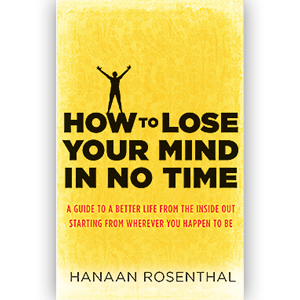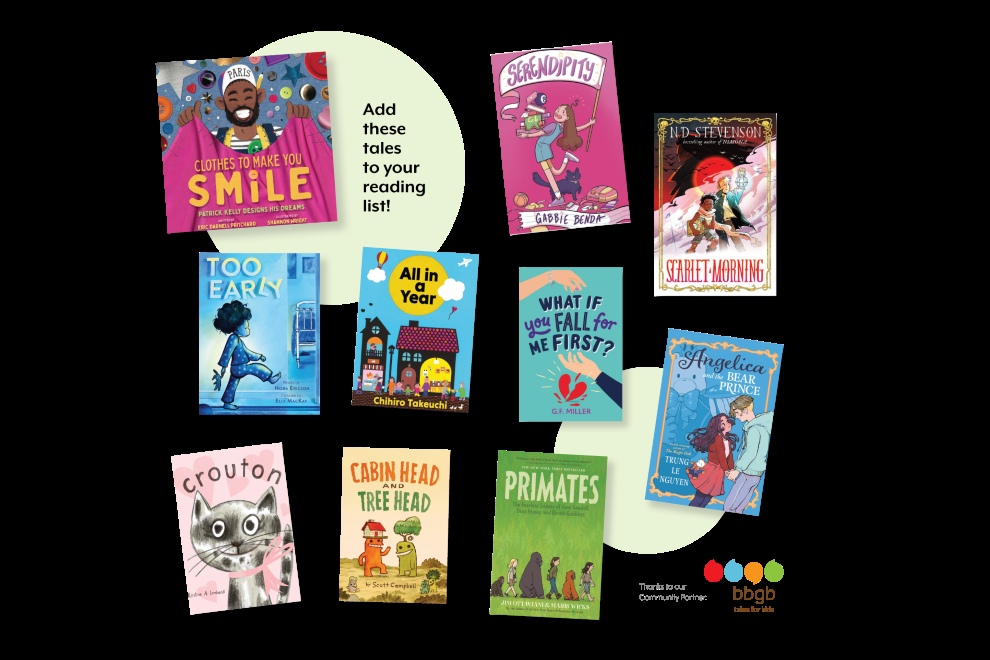 How’s your resolution coming along? If you’re at all like me, you may have had to remind yourself recently what your resolution even was. Not a good start. Still, as Hanann Rosenthal argues in his book How to Lose Your Mind in No Time, if you can visualize, you can become it.
How’s your resolution coming along? If you’re at all like me, you may have had to remind yourself recently what your resolution even was. Not a good start. Still, as Hanann Rosenthal argues in his book How to Lose Your Mind in No Time, if you can visualize, you can become it.
If a happier life is what you’re after, then you need to start within. “Most people like to complain about their lives; they like to point out what’s wrong. They have no idea that these very actions are responsible for getting more of exactly what you are complaining about,” maintains Rosenthal.
According to Rosenthal, “Making our lives better almost always requires us to swallow a very large slice of humble pie,” because usually the action we find most annoying in others is actually something we’re guilty of ourselves. That’s why real change begins with awareness. Take overreacting, for an example. The next time you start yelling at the kids for spilling juice on the couch, Rosenthal encourages you to remember that no one ever died from a stain.
In reality, the key to happiness is opening your arms to unhappiness since it’s unavoidable. In doing so, Rosenthal believes, you grow comfortable not only with the things in your life that are going your way but also those that aren’t. After all, negative emotions are inevitable. It’s how we react to them that matters most. Rosenthal claims, “Knowing that our lives are good even when we feel bad is essential.”
So the next time anxiety strikes, Rosenthal suggests you ask yourself a “magical yes and no question” right away. The question is, according to Rosenthal, “Is there anything I can or am willing to do right now to make this particular situation better?” If you can, then do, but if you can’t, then you must let it go. As far as Rosenthal is concerned, “This pragmatic question is amazing because it brings a sharp sense of logic into an emotional situation.”
How to Lose Your Mind in No Time argues that part of the reason people fail to create the life they want is because they imagine things in the future tense instead of describing an intention as happening now. Rosenthal believes having what you want is easy if you prevent doubt from taking over. He maintains that your subconscious will use self-talk, such as “It’s too dangerous” or “This will never work” to put an end to your plans. While most people attempt to fix this problem by asserting control, success is actually achieved by letting go.
“Your life is a cruise, and your role, as captain, does not require controlling the details but rather setting the course and enjoying the ride,” explains Rosenthal. You need to accept the process and trust in others to do the work to your satisfaction. This analogy of being a captain of one’s ship is one that I’ve blogged about before. Susan Stiffelman uses the same concept in her book Parenting Without Power Struggles – the idea of simply occasionally steering your kids in the right directions, instead of micro-managing everything.
Essentially, Rosenthal argues in order to have the life you want you need to get out of your own way. “Good things happen only when we let them. Good things happen when we let go of the need to control,” he claims. So stop feeling like you need to always be doing something when it comes to yourself and your children. Sit under a tree and watch the seed you planted grow. Repeat his mantra, “Everything is good.” Sure, occasionally you can tend to it, water it, and even move it to a different spot in the sun, but Rosenthal urges you to trust that the plant will thrive if you simply let it grow.
Follow @WinterhalterV on Twitter for updates on blog posts or like Parenting by the Book on Facebook.
Read my other blog Befriending Forty.



